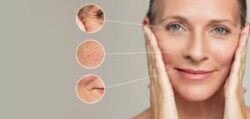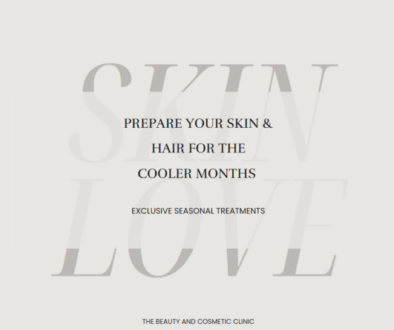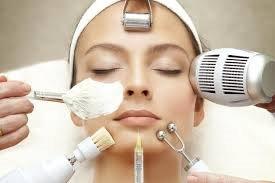Hormonal Harmony: The Secret Weapon in Aesthetic Medicine
The Importance of Hormonal Balance for Aesthetics
As a cosmetic functional doctor, I have come to recognize the critical role that hormonal balance plays in achieving and maintaining aesthetic results.
Many patients may be unaware that their hormone levels can significantly impact the success of cosmetic treatments, as well as the overall health and appearance of their skin and hair. To deliver the best outcomes, it is essential to consider hormone health as part of a holistic aesthetic plan.
Achieving hormonal balance in men and women is one of the main anti-aging strategies that I pursue in our clinic and I am very happy to explore this pathway for my patients.
How Hormones Impact the Skin
Hormones, produced by the endocrine system, regulate numerous bodily functions, including those that affect the skin. As we age, hormonal changes can lead to noticeable shifts in skin texture, elasticity, and overall appearance. These changes are not limited to women—men, too, experience hormonal fluctuations that affect their skin health.
Here are some key points on how specific hormones influence the skin:
- Estrogen: In women, estrogen levels decline with age, particularly during menopause. This hormone plays a vital role in maintaining skin hydration, elasticity, and wound healing. Lower estrogen levels often lead to thinner, drier skin and the appearance of fine lines and wrinkles.
- Cortisol: Often called the “stress hormone,” cortisol can negatively impact skin health when levels remain elevated for prolonged periods. It contributes to collagen and elastin breakdown, leading to premature aging, inflammation, and slower wound healing.
- Insulin: Imbalances in insulin can trigger inflammation and oxidative stress, both of which contribute to skin aging and the development of issues like acne and hyperpigmentation.
- Testosterone: As testosterone levels naturally decrease with age, both men and women may notice several aesthetic changes. Lower testosterone can lead to thinning skin, reduced muscle mass, and an increase in body fat, particularly around the abdomen. Hair thinning or loss is another common sign, especially in men. Additionally, the skin may lose elasticity and moisture, contributing to a dull or aged appearance. Understanding these changes can help individuals take proactive steps—such as hormone-balancing lifestyle choices and targeted skincare routines—to mitigate the visible effects of testosterone decline.
Benefits of Hormonal Optimization
Balancing hormone levels through lifestyle changes, targeted treatments, and hormone therapy can improve skin health and boost the results of aesthetic procedures. Patients who maintain optimal hormone levels often experience:
- Improved Skin Appearance: A balanced endocrine system supports healthier, more resilient skin that is better able to maintain its youthful elasticity and radiance.
- Faster Healing: After aesthetic procedures, hormonal balance aids in quicker recovery and better healing. This means less downtime for patients and more effective results.
- Long-Lasting Outcomes: Hormonal optimization helps sustain the benefits of treatments like injectables, lasers, and other energy-based therapies, leading to more durable and satisfying results.
The Role of Endocrine Disruptors in Skin Health
Many people are unaware that common chemicals found in everyday products can act as endocrine disruptors. These substances interfere with normal hormone function and can have adverse effects on the skin. Examples include parabens, phthalates, and certain synthetic fragrances, which are often found in skincare and beauty products. Exposure to these disruptors can lead to issues like acne, hyperpigmentation, and premature aging.
The growing “clean beauty” movement encourages the use of products free from these harmful chemicals, promoting healthier hormone function and, in turn, healthier skin. Choosing clean beauty products is an essential step in protecting hormonal balance and enhancing aesthetic results.
Cortisol and Its Impact on Skin and Hair Health
Chronic stress leads to elevated cortisol levels, which, over time, can wreak havoc on the skin and hair. High cortisol causes:
- Collagen Breakdown: This weakens the skin’s structure, leading to sagging, fine lines, and wrinkles.
- Increased Inflammation: Inflammation accelerates the aging process, contributing to acne, dryness, and irritation.
- Hair Loss and Thinning: Stress-related cortisol spikes can also disrupt the hair growth cycle, leading to increased hair loss or thinning.
Managing stress through lifestyle changes and targeted therapies is crucial for protecting skin and hair health.
Hormonal Changes and Aging Skin
For women, menopause brings significant hormonal changes, particularly a drop in estrogen levels. This decline can result in:
- Skin Thinning: Reduced estrogen leads to a decrease in collagen production, making the skin thinner and more prone to wrinkles.
- Loss of Elasticity: Without sufficient estrogen, skin loses its natural firmness and elasticity, contributing to sagging.
- Changes in Hair Growth: Hormonal imbalances can cause hair thinning or even hair loss.
While aging is inevitable, addressing hormonal imbalances can slow these processes and enhance the skin’s ability to regenerate and maintain its youthful appearance.
Strategies for Optimizing Hormonal Balance
Achieving and maintaining hormonal balance requires a multifaceted approach. Here are several strategies that can help optimize hormone levels for better skin and hair health:
- Hormone Testing and Therapy:
- Saliva or blood tests can assess hormone levels and identify imbalances.
- Bioidentical Hormone Replacement Therapy (BHRT) is an effective way to restore declining hormone levels.
- Topical hormone treatments, such as estriol serum, can be applied directly to the skin for localized benefits.
- Lifestyle Modifications:
- Regular exercise helps regulate hormones and reduce stress.
- Adequate sleep supports proper hormone production.
- Stress reduction techniques, such as meditation, yoga, and deep breathing, can lower cortisol levels.
- A healthy diet, rich in whole foods and low in processed foods, promotes hormonal balance.
- Supplementation:
- Adaptogenic herbs like ashwagandha and rhodiola can help manage stress and support adrenal function.
- Magnesium and omega-3 fatty acids are essential for hormonal health and skin vitality.
- Probiotics support gut health, which plays a crucial role in hormone regulation.
- Aesthetic Treatments:
- Injectable collagen stimulators can help boost collagen production.
- Laser and energy-based devices improve skin texture, tone, and elasticity, working synergistically with hormonal balance to optimize results.
The Future of Aesthetic Medicine
The future of aesthetic medicine is moving towards personalized, integrated approaches that combine external treatments with internal wellness. By addressing hormonal balance, we can help patients achieve longer-lasting, more natural results that go beyond traditional cosmetic treatments.
A growing emphasis on regenerative medicine, including stem cell therapies and advanced hormone treatments, is also paving the way for more effective, long-term solutions to aging. As aesthetic medicine evolves, the integration of hormonal health into treatment plans will play a key role in helping patients look and feel their best.
Conclusion
Incorporating hormonal balance into aesthetic treatment plans is essential for achieving optimal results. Hormones impact every aspect of skin and hair health, and by addressing imbalances, we can enhance both the effectiveness and longevity of aesthetic procedures. Whether through lifestyle modifications, supplementation, hormone therapy, or clean beauty choices, maintaining hormonal health will help you achieve the youthful, radiant appearance you desire.
FAQs
- How do hormones affect skin aging?
Hormones like estrogen, cortisol, and insulin play a vital role in skin health. Hormonal imbalances can lead to thinning skin, loss of elasticity, and premature aging. - Can stress impact my skin’s appearance?
Yes, chronic stress increases cortisol levels, which can cause collagen breakdown, inflammation, and slow healing, leading to signs of aging like wrinkles and dryness. - What are endocrine disruptors, and how do they affect my skin?
Endocrine disruptors are chemicals that interfere with hormone function. They can worsen skin issues like acne, hyperpigmentation, and premature aging. Clean beauty products help minimize exposure. - How can hormone therapy improve my aesthetic results?
Hormone optimization supports better skin healing and longer-lasting aesthetic results, particularly in treatments like injectables and lasers. - What lifestyle changes can I make to balance my hormones?
Regular exercise, stress reduction, healthy eating, and adequate sleep all help regulate hormones and improve skin and hair health.





